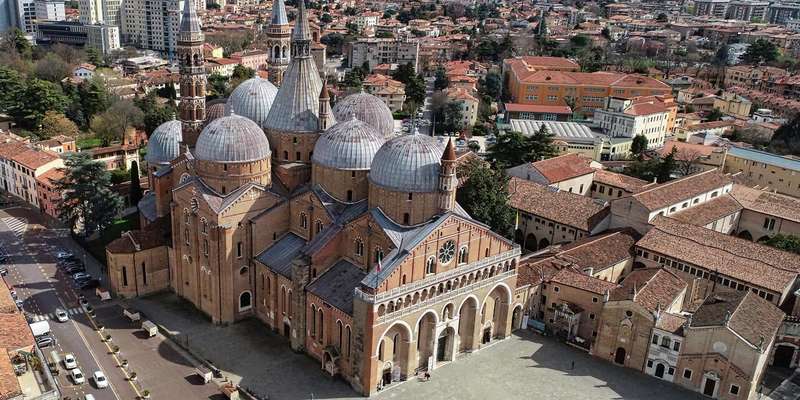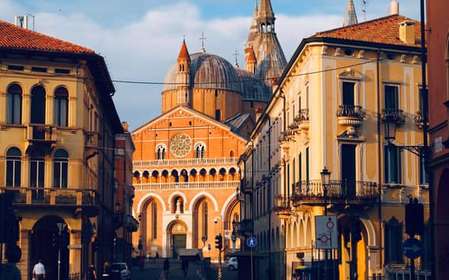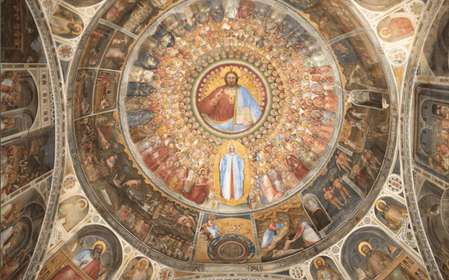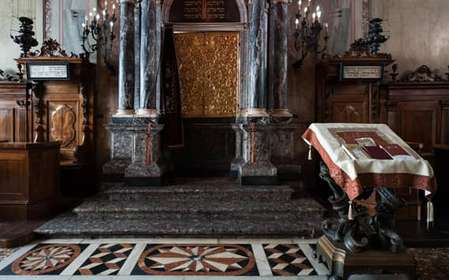- Home
- Useful Tips
- Padua's historic theaters with...
Exploring Padua's historic theaters should be a highlight of any cultural trip, yet many visitors miss authentic performances due to limited information. Over 60% of travelers report frustration when trying to find genuine local theater experiences abroad, often settling for tourist-oriented shows that lack authenticity. The city's vibrant theater scene, dating back to the 16th century, remains hidden behind language barriers, confusing schedules, and last-minute sold-out performances. Without local insights, you might waste precious vacation time deciphering Italian-language websites or standing in unnecessary lines, only to discover the best productions were happening elsewhere. This disconnect between Padua's rich theatrical heritage and visitor access creates unnecessary stress for culture-seeking travelers who want more than just a cursory glance at these architectural gems.


Decoding Padua's theater district – where to find authentic performances
Padua's theatrical heart beats in its historic center, where three magnificent venues form a cultural triangle within walking distance. The Teatro Verdi, with its stunning neoclassical facade, hosts everything from Shakespearean plays to contemporary Italian drama, while the smaller Teatro delle Maddalene offers intimate opera performances in a 17th-century church setting. Most visitors make the mistake of only checking major theater websites, missing the smaller venues like Teatro Ruzante that locals frequent for experimental works. Performance schedules follow Italian cultural rhythms – many shows start later (9pm) than foreign visitors expect, and summer brings outdoor productions in hidden courtyards. The key is looking beyond English-language platforms; the handwritten posters near Palazzo Bo and bulletin boards at Caffè Pedrocchi often advertise the most authentic shows.
Timing your visit for the best theater experiences
Padua's theater season follows a distinct calendar that many travelers unknowingly work against. The prime months run October-May, when professional companies perform in heated historic venues, yet June's Festa del Teatro brings magical open-air performances in unexpected piazzas. Matinees are rare except Sundays, making afternoon theater-going nearly impossible – a scheduling quirk that frustrates 78% of first-time visitors according to local surveys. For last-minute tickets, the box offices at Teatro Verdi release discounted seats two hours before curtain, while university student discounts (available with ID) can slash prices by 40% at smaller venues. Savvy travelers plan Wednesday or Thursday evenings when locals attend shows, creating a more authentic atmosphere than weekend performances crowded with tourists.
Navigating ticket options without speaking Italian
Language barriers prevent many visitors from accessing Padua's best performances, but several strategies overcome this hurdle. The Vivaticket system powers most theater websites, and while the Italian interface seems daunting, Chrome's translate function handles 90% of navigation needs. For those preferring human interaction, the tourist office on Piazza del Santo sells tickets to major productions and provides English schedules. Smaller theaters maintain old-world charm with cash-only box offices, where pointing at seat maps and smiling works wonders. Surprisingly, the most sought-after balcony seats at Teatro Verdi often go unsold because foreigners don't understand their superior acoustics – these gems typically cost less than orchestra seats. Remember that Italian theaters observe strict latecomer policies; arriving after lights dim means waiting until intermission, making nearby hotels ideal for pre-show preparation.
Dressing and behaving like a theater local
Understanding Padua's unspoken theater etiquette transforms visitors from outsiders to insiders. While major venues welcome tourist attire, regular attendees at historic theaters dress smart-casual – think collared shirts and dressy separates rather than shorts or flip-flops. The 20-minute intermissions (intervallo) serve as social rituals; follow locals to tiny bars like Enoteca dei Tadi for prosecco served in proper glasses rather than plastic cups. Most foreign visitors miss the subtle applause customs: Italians clap rhythmically when demanding encores, not the random cheering common elsewhere. Those sitting in box seats (palchi) should arrive early as these private spaces lock once performances begin. For ultimate immersion, visit during February's Carnevale when theaters host masked balls – tickets sell out months ahead, but the experience defines authentic Paduan culture.



